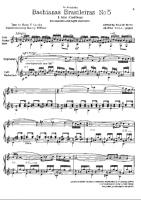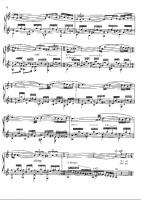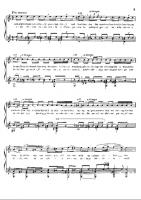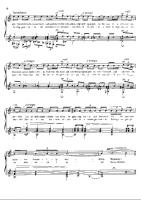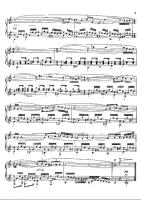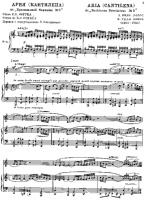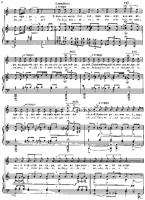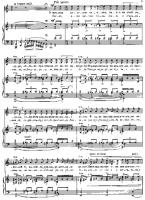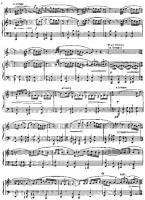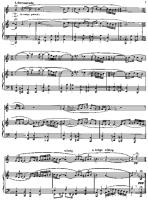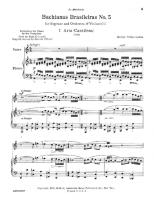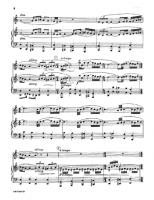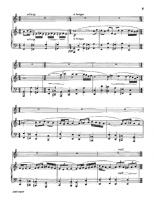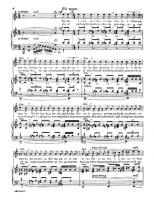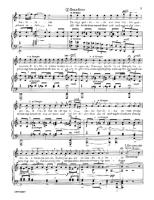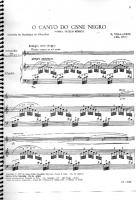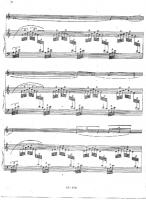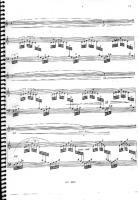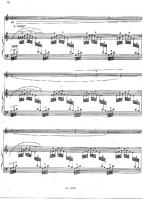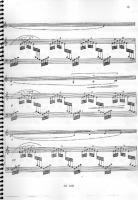Heitor Villa-Lobos Sheet Music
 Heitor Villa-Lobos (March 5, 1887 – November 17, 1959) was a Brazilian composer, described as "the single most significant creative figure in 20th-century Brazilian art music". Villa-Lobos has become the best-known and most significant Latin American composer to date. He wrote numerous orchestral, chamber, instrumental and vocal works. His music was influenced by both Brazilian folk music and by stylistic elements from the European classical tradition, as exemplified by his Bachianas Brasileiras ("Brazilian Bachian-pieces").
Heitor Villa-Lobos (March 5, 1887 – November 17, 1959) was a Brazilian composer, described as "the single most significant creative figure in 20th-century Brazilian art music". Villa-Lobos has become the best-known and most significant Latin American composer to date. He wrote numerous orchestral, chamber, instrumental and vocal works. His music was influenced by both Brazilian folk music and by stylistic elements from the European classical tradition, as exemplified by his Bachianas Brasileiras ("Brazilian Bachian-pieces").His earliest pieces originated in guitar improvisations, for example Panqueca ("Pancake") of 1900. The concert series of 1915–21 included first performances of pieces demonstrating originality and virtuosic technique. Some of these pieces are early examples of elements of importance throughout his œuvre. His attachment to the Iberian Peninsula is demonstrated in Canção Ibéria of 1914 and in orchestral transcriptions of some of Enrique Granados' piano Goyescas (1918, now lost). Other themes that were to recur in his later work include the anguish and despair of the piece Desesperança— Sonata Phantastica e Capricciosa no. 1 (1915), a violin sonata including "histrionic and violently contrasting emotions", the birds of L'oiseau blessé d'une flèche (1913), the mother-child relationship (not usually a happy one in Villa-Lobos's music) in Les mères of 1914, and the flowers of Suíte floral for piano of 1916–18 which reappeared in Distribuição de flores for flute and guitar of 1937.
Reconciling European tradition and Brazilian influences was also an element that bore fruit more formally later. His earliest published work Pequena suíte for cello and piano of 1913 shows a love for the cello, but is not notably Brazilian, although it contains elements that were to resurface later. His three-movement String Quartet no. 1 (Suíte graciosa) of 1915 (expanded to six movements ca. 1947) is influenced by European opera, while Três danças características (africanas e indígenas) of 1914–16 for piano, later arranged for octet and subsequently orchestrated, is radically influenced by the tribal music of the Caripunas Indians of Mato Grosso.
With his tone poems Amazonas (1916, first performed in Paris in 1929) and Uirapurú (1916, first performed 1935) he created works dominated by indigenous Brazilian influences. The works use Brazilian folk tales and characters, imitations of the sounds of the jungle and its fauna, imitations of the sound of the nose-flute by the violinophone, and not least imitations of the uirapuru itself.
Search for Free Sheet Music
You can make a search through the entire collection of sheets.
You can make a search through the entire collection of sheets.
Latest Artists
Santana
× 1
Leopold Mozart × 1
Sinead O'Connor × 1
Louis Armstrong × 3
Henri Vieuxtemps × 1
John Stainer × 1
omoi × 1
Threepenny Opera × 1
Domenico Scarlatti × 1
Otha Young × 1
ABBA × 1
Mathilde Santing × 1
Emilio Chamorro × 2
Steve Baker × 1
Black Eyed Peas × 1
Cecile Chaminade × 1
Robert Trognée × 1
Alicia Keys × 2
Backstreet Boys × 1
The Doors × 1
Raymond Pauls × 1
Scott Alan × 2
Agustín Lara × 1
Nikolai Nikolayevich Dobron... × 1
Jason Robert Brown × 2
Clifford Brown × 1
Nelly Furtado × 1
The Legend of Zelda × 2
Sally DeFord × 4
Guns N' Roses × 1
Keiko Matsui × 3
W. HANNA J. BARBERA × 1
Foo Fighters × 1
ZUN × 2
J. S. Bach × 2
Felix Mendelssohn Bartholdy × 1
Beethoven × 2
bijan mortazavi × 1
Robert Wells × 1
Quincy Jones × 1
Ryan Kisor × 1
Brahms × 9
Muse × 1
Albinoni × 2
Bright Eyes × 1
Abraham Chasins × 1
Haynes × 1
Gate Keepers × 1
Ronan Hardiman × 1
Johann Pachelbel × 1
Leopold Mozart × 1
Sinead O'Connor × 1
Louis Armstrong × 3
Henri Vieuxtemps × 1
John Stainer × 1
omoi × 1
Threepenny Opera × 1
Domenico Scarlatti × 1
Otha Young × 1
ABBA × 1
Mathilde Santing × 1
Emilio Chamorro × 2
Steve Baker × 1
Black Eyed Peas × 1
Cecile Chaminade × 1
Robert Trognée × 1
Alicia Keys × 2
Backstreet Boys × 1
The Doors × 1
Raymond Pauls × 1
Scott Alan × 2
Agustín Lara × 1
Nikolai Nikolayevich Dobron... × 1
Jason Robert Brown × 2
Clifford Brown × 1
Nelly Furtado × 1
The Legend of Zelda × 2
Sally DeFord × 4
Guns N' Roses × 1
Keiko Matsui × 3
W. HANNA J. BARBERA × 1
Foo Fighters × 1
ZUN × 2
J. S. Bach × 2
Felix Mendelssohn Bartholdy × 1
Beethoven × 2
bijan mortazavi × 1
Robert Wells × 1
Quincy Jones × 1
Ryan Kisor × 1
Brahms × 9
Muse × 1
Albinoni × 2
Bright Eyes × 1
Abraham Chasins × 1
Haynes × 1
Gate Keepers × 1
Ronan Hardiman × 1
Johann Pachelbel × 1

